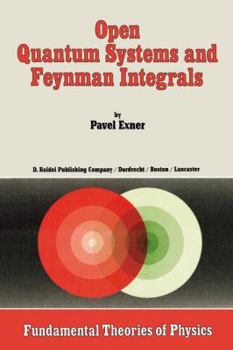Open Quantum Systems and Feynman Integrals
Every part of physics offers examples of non-stability phenomena, but probably nowhere are they so plentiful and worthy of study as in the realm of quantum theory. The present volume is devoted to this problem: we shall be concerned with open quantum systems, i.e. those that cannot be regarded as isolated from the rest of the physical universe. It is a natural framework in which non-stationary processes can be investigated. There are two main approaches to the treatment of open systems in quantum theory. In both the system under consideration is viewed as part of a larger system, assumed to be isolated in a reasonable approximation. They are differentiated mainly by the way in which the state Hilbert space of the open system is related to that of the isolated system - either by orthogonal sum or by tensor product. Though often applicable simultaneously to the same physical situation, these approaches are complementary in a sense and are adapted to different purposes. Here we shall be concerned with the first approach, which is suitable primarily for a description of decay processes, absorption, etc. The second approach is used mostly for the treatment of various relaxation phenomena. It is comparably better examined at present; in particular, the reader may consult a monograph by E. B. Davies.
Format:Hardcover
Language:English
ISBN:9027716781
ISBN13:9789027716781
Release Date:November 1984
Publisher:Springer
Length:356 Pages
Weight:1.72 lbs.
Dimensions:1.1" x 6.4" x 9.6"
Customer Reviews
0 rating





